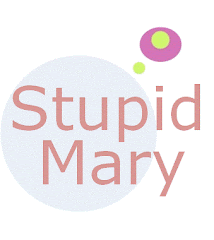This is for all people who work in Advertising. I totally agree with this post and that's why I'm pasting it exactly as it was written by the author - Heidi Hackemer, planning director at BBH NY. Enjoy :)
___
(Posted on May 6th, 2010 at 2:16 am by @uberblond on her blog)
the traditional brief should die.
traditional way: planners go off into their magic black box of thought and perception, ponder the philosophies of society and our world, and then emerge triumphant with the golden insight and magical one true thing. and i get the allure of that, both from the planner feeling like a hero and the creative having the assurance of the safety buoy of a brief. but as i do more immersive brand planning that’s geared for today’s realities, digital and not (which is different than being a “digital strategist”), my role is radically changing.
this is the system that i’ve worked out and through with pelle and calle sjoenell (@pellesjoenell and @callesjonell – yes they’re brothers; no they can’t agree on how to Americanize their swedish last name), first on Axe and now on Google.
i don’t give my creatives the one brilliant insight anymore nor do i give them an incredibly clever one true thing these days. I do give them three things: 1) a one pager of the story of the situation and problem we have to solve (incredibly crafted by the way – not a sloppy re-iteration of the client brief) 2) a center of a brief that is often a rather dry message that our target needs to walk away with (ie: “Axe Shampoo makes your hair twice as shiny as the leading competitor”). 3) a page worth of multiple insights that tie to our target and the way they might interact with this product/context.
the philosophy is this: i don’t presume to know the one bullet way in to solving the problem. I have my hunches, but I also think I work with a pretty smart group of people that can look at it in ways that I won’t think of.
so we pressure test insights through the group and through creative/strategic exploration (often in the form of a workshop , which by the way can be incredibly effective, more on that another day). as long as the insight isn’t false or irrelevant to the situation at hand, and if it leads to a viable solution, then its fair game. my job in this process is to provide fuel, represent the target and the business situation, corral thought and counter-balance creative whim that may whim to far into the “wouldn’t it be cool if…” zone (without destroying creative souls).
it’s more work. it’s more collaboration. and it means that i gotta trust my team and they trust me. but it works for us and seems more realistic.
what makes this difficult – i’ve had to give up what planners usually consider their (internal and external intellectual) weapon. no longer do i hold THE answer; rather I contribute to a series of smaller, iterative answers. no longer can I be assured that when all is said and done, i’ll be able to point to that magic middle of the brief and say “that was me”, because it won’t be. the ego has to drop. that vulnerable planner goo in me gets exposed.
but i believe in it. i’d encourage you to give it a shot (and ping me with questions if you need to).
___
___


Brilliant!
ReplyDelete